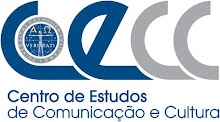O CECC convida
todos os interessados a participarem em “Ler Shakespeare”. Este clube de
leitura pretende dar a conhecer e debater a obra dramática do autor. Será
discutida mensalmente uma peça, lida preferencialmente em inglês. Dada a
variedade de tópicos presentes na obra do autor, o clube de leitura possibilita
reunir interesses teóricos distintos, tais como o estudo do corpo ou de género,
entre outros. Ocasionalmente, serão convidados especialistas (actores,
encenadores, cenógrafos) para as sessões.
10 meses, 10
peças, duas sessões por mês
Quinta-feira, 3
de Janeiro de 2013, às 18.30
Entrada livre e
textos disponibilizados mediante inscrição para:
Coordenação:
Maria Sequeira Mendes
Programa das
sessões:
Macbeth, 3 e 10
Janeiro
Titus Andronicus,
31 e 7 de Fevereiro
Richard III, 28 e
7 de Março
Henry IV, 4 e 11
de Abril
Julius Caesar, 2
e 9 Maio
Hamlet, 6 e 13 de
Junho
King Lear, 4 e 11
de Julho
Antony and
Cleopatra, 5 e 12 de Setembro
Coriolanus,
3 e 10 de Outubro
The
Tempest, 7 e 14 de Novembro
 A linha de investigação "Translating Europe across the Ages" do Centro de Estudos de Comunicação e Cultura continua o ciclo de conferências sob o título "Ler, Pensar, Traduzir". O autor agora homenageado é Fernando Pessoa, que será apresentado pelo tradutor e investigador Doutor Steffen Dix, no dia 9 de Abril de 2013, 18h30, sala 125.
A linha de investigação "Translating Europe across the Ages" do Centro de Estudos de Comunicação e Cultura continua o ciclo de conferências sob o título "Ler, Pensar, Traduzir". O autor agora homenageado é Fernando Pessoa, que será apresentado pelo tradutor e investigador Doutor Steffen Dix, no dia 9 de Abril de 2013, 18h30, sala 125.







